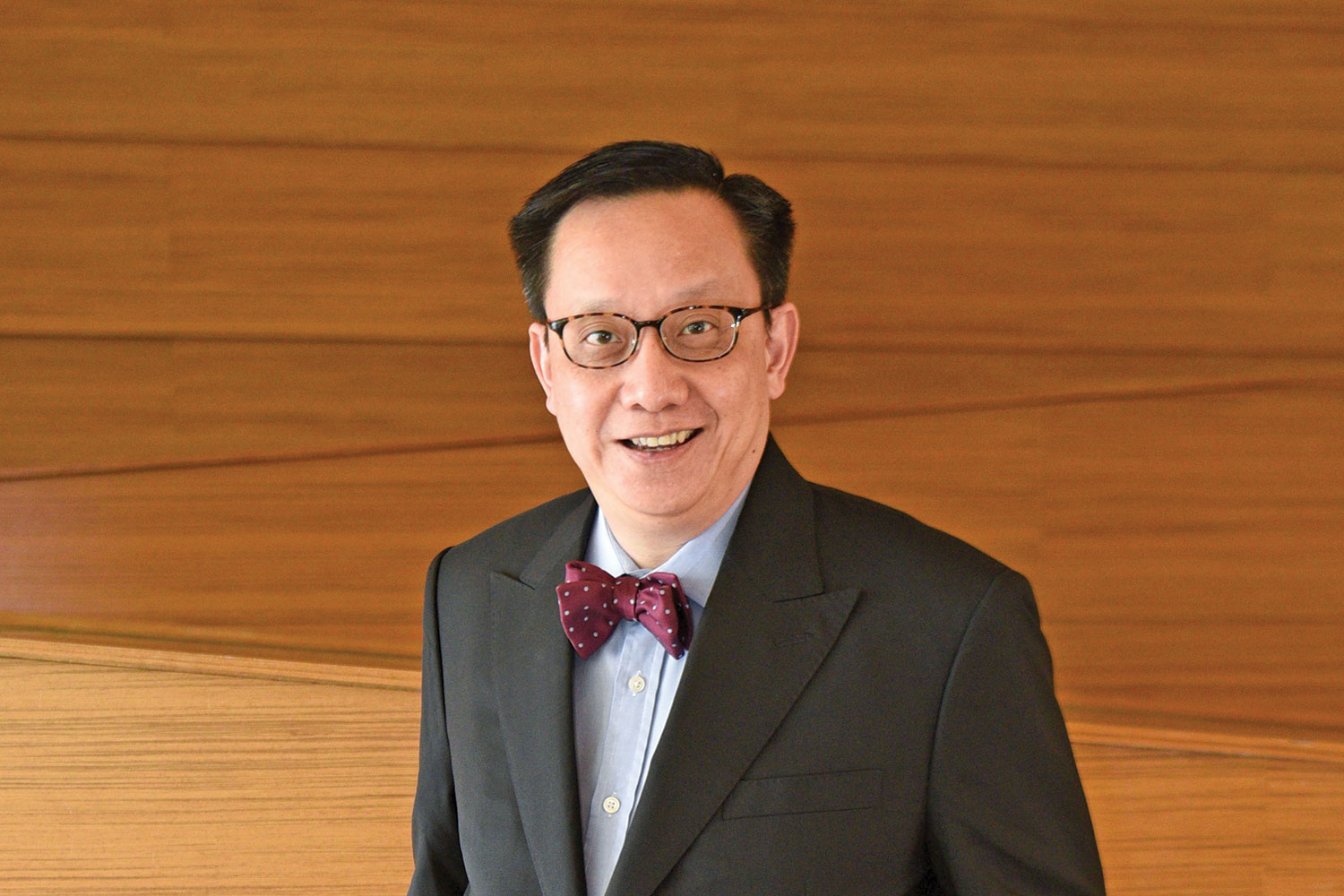
Issue 39 / August 2021
Dean’s Message

Dear Reader,
I
t is August 2021, and we are a year and a half into the pandemic. Much has changed, and much more change will come our way in the coming months as we learn to deal with the impact of the virus and adjust to new ways of living.
Amidst these unprecedented times, we welcome the Class of 2026. Medical and nursing studies for our newest students will be an experience unlike that of their predecessors’. But thanks to careful planning, blended learning, innovative pedagogies and creative technologies, we are able to make the learning journeys of our new students as enriching and fulfilling as that experienced by their seniors.
But what will the world be like by the time they graduate? While it is highly possible that COVID-19 may have been suppressed, or at least controlled, thoroughly by then with the arrival of next-generation vaccines and therapeutic treatments, what other pandemics are waiting to jump out of Pandora’s Box? How do we ensure that tomorrow’s doctors and nurses are equipped to meet the challenges that will surely be waiting for them? In this sense, nothing has changed. The study and practice of Medicine has evolved and developed in response to new needs, whether these take the form and shape of novel viruses or diseases that are a consequence of globalisation and our 21st century lifestyles, as well as the ever-widening effects of global climate change.
The Class of 2026, like those before and after them, will need courage, vision, compassion and drive to successfully handle the stresses and challenges that will be waiting for them. I see these qualities in this year’s graduating classes of 2020 and 2021. They have come through a particularly trying 18 months, in which the pandemic upended their clinical postings, killed off overseas attachments and programmes and plans, forced them into online learning sessions, and minimised social interaction. The Class of 2020 did not even have the opportunity to participate in the time-honoured tradition of receiving their degree scrolls on Commencement Day, so urgent was the need for their services. Along with the Class of 2021, the shared spirit of tenacity and compassionate devotion to duty in the face of uncertainty and highly stressful times is laudatory. Let me share the example of Dr Megan Loy, from this year’s graduating class.
In her Phase III Paediatrics posting, Megan met a woman whose daughter had been warded for treatment. The mother’s distress over her daughter’s condition prompted Megan to reach out to the woman to reassure her that her daughter was being well looked-after. It was a small gesture that touched the woman profoundly. A few years later, in her final year of medical school, one of the House Officers on Megan’s team turned out to be a relative of this woman. The House Officer recounted that the woman still spoke fondly of the kindness that Megan showed her. A comforting word and a listening ear—clear testimony of the impact that genuine compassion can have on the lives of patients and their loved ones.
The same spirit of compassion drove another alumnus, the late Professor Wong Hock Boon to devote his life to caring for people. Prof Wong graduated from the then University of Malaya in Singapore in 1952. He was offered the Founder Chair of Paediatrics in 1962 by the University of Singapore and was appointed Founder Director of the School of Postgraduate Medical Studies (now the Division of Graduate Medical Studies) in 1965. His devotion to the daily ward round with the Paediatrics department was legendary. Starting promptly at 7.30am every day, a gruelling 365 days a year, Prof Wong led a long train of paediatricians, trainees, and students through the wards, solving clinical problems for all patients, regardless of social class. Each day, immediately after the ward rounds, Prof Wong would jot down on a small piece of paper the difficult problems he had encountered on the ward rounds. He would then make his way to the medical library to research the latest advances on these clinical problems and write down his findings. This lifelong habit of continuous learning and teaching culminated in 52 volumes of the Paediatric Clinical Conference notes, wrote two of his former students turned colleagues, Dr William Yip and Prof Quak Seng Hock in a tribute to their teacher and mentor in March 2009. Besides his academic approach to the practice of paediatrics, Prof Wong campaigned vigorously to tackle childhood malnutrition and infantile diarrhoeal diseases, through the promotion of breastfeeding, aiming to improve the health status of children in the region. He pioneered the use of rice-water for oral rehydration in the management of acute gastroenteritis, and this enabled a new and highly cost-effective approach to diarrhoeal diseases in the developing world. His pioneering work on glucose 6 phosphate dehydrogenase (G6PD) deficiency in newborns resulted in a significant reduction in the incidence of kernicterus in Singapore and in the region. Prof Wong passed away in December 2008.
Two alumni of the School, generations apart, but linked by an enduring common compassion to provide the best of care for others. This is the DNA of the School that has energised every generation of NUS Medicine students.
Yours sincerely,

Chong Yap Seng




